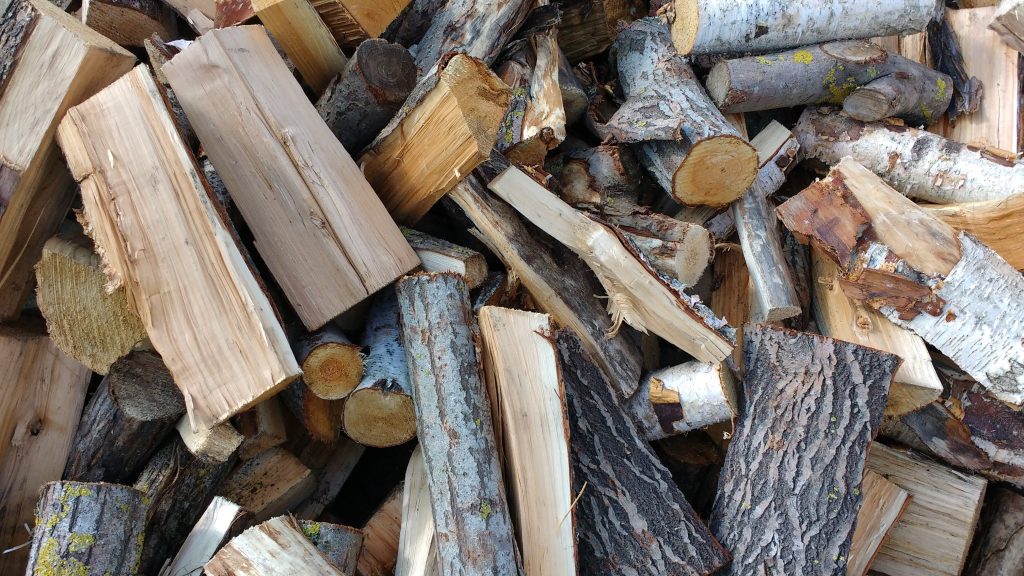Firewood Business in Nigeria is one of the age-long lucrative small businesses that any savvy entrepreneur can start to earn a fortune, most especially in the wake of the high cost of living these days.
Firewood has been a crucial source of energy for cooking, heating, and other purposes in Nigeria for centuries.
Table of Contents
Despite the growing popularity of gas and electricity, firewood remains an essential commodity in rural areas, where it is widely used for everyday cooking activities.
Thus, the firewood business in Nigeria presents a lucrative venture with significant opportunities for entrepreneurs in Nigeria.
The Demand for Firewood in Nigeria
The demand for firewood in Nigeria is driven by various factors, including:
- Population growth: Nigeria’s population is projected to reach 418 million by 2050, this would further lead to an increase in the demand for firewood for cooking and heating.
- Urbanization: While urbanization has led to a decline in firewood consumption in urban areas, the growth of rural communities continues to sustain the demand.
- Deforestation: The depletion of natural forests has made firewood scarcer, driving up its market value.
These factors make the firewood business in Nigeria an attractive small business any savvy entrepreneur could embark on to earn a living.
You can sell your firewood to various target customers such as local food sellers, bakeries, caterers, restaurants, and those who buy for household use.
How Profitable is Firewood Business in Nigeria?
The firewood business in Nigeria is a profitable venture for those willing to invest the time and effort.
The profit margin is substantially around 50% – 70%, especially for those involved in harvesting and selling firewood directly to final consumers.
The actors in the firewood business in Nigeria rake in huge profits as Nigerians run away from costly cooking gas.
A heap of firewood now costs as little as N5,000, the same size that was sold for N1,000 before the hike in the cost of cooking gas.
The profitability depends on various factors, including:
- Quality of firewood: Higher quality firewood, such as hardwood, fetches higher prices.
- Location: Firewood prices tend to be higher in urban areas and areas with limited forest cover
- Time of year: Firewood demand and prices typically peak during the rainy season.
Here’s an interesting story to read on how Nigerians are making good profits from the firewood business in Nigeria.
Ways to Get Involved in the Firewood Business
There are various ways to get involved in the firewood business, each with its own set of requirements and potential rewards:
- Harvesting and Selling Firewood: This involves directly harvesting firewood from forests or woodlands, processing it, and selling it to consumers or businesses. It requires access to forests, necessary tools and equipment, and transportation for delivery.
- Transportation and Distribution: This involves transporting firewood from harvesting sites to market areas and distributing it to retailers or consumers. It requires a reliable network of suppliers, logistic vehicles, and storage facilities.
- Value-Added Services: This involves providing additional services related to firewood, such as chopping, packaging, or delivery to specific locations. It requires specialized equipment, skilled labor, and a targeted customer base.
- Supplying Firewood to Businesses and Organizations: This involves establishing contracts to supply firewood to restaurants, hotels, institutions, or other entities that require large quantities. It requires a reliable source of firewood, efficient transportation, and the ability to meet customer demands.
- Firewood Production and Processing: This involves establishing a business that processes firewood into specific forms, such as charcoal, briquettes, or fuelwood logs. It requires specialized equipment, regulatory compliance, and marketing strategies.
Challenges of the Firewood Business
Despite its potential profitability, the firewood business in Nigeria faces several challenges:
- Environmental Concerns: Deforestation caused by unsustainable harvesting practices poses a significant environmental threat. Sustainable harvesting methods and reforestation efforts are crucial.
- Competition from Other Fuels: The increasing availability and affordability of gas and electricity have reduced firewood consumption in some areas. Differentiation and value-added services can help firewood remain competitive.
- Government Regulations: Regulations on forest management and firewood harvesting can affect business operations. Staying informed and compliant is essential.
- Seasonality and Market Fluctuations: Firewood demand and prices are subject to seasonal variations and economic fluctuations. Diversifying products or services can mitigate these effects.
Strategies for Success
To thrive in the firewood business, entrepreneurs should consider the following strategies:
- Sustainability: Implement sustainable harvesting practices, source firewood from responsible suppliers, and promote reforestation initiatives.
- Quality Control: Ensure consistent quality of firewood products to maintain customer satisfaction and market reputation.
- Market Research and Targeting: Identify target markets, understand their needs and preferences, and tailor marketing strategies accordingly.
- Networking and Partnerships: Build relationships with suppliers, distributors, and potential customers to expand market reach and opportunities.
- Compliance with Regulations: Stay informed about and comply with relevant environmental and forestry regulations.
- Diversification and Value-Added Services: Consider offering additional products or services, such as processed firewood forms, delivery options, or value-added packaging.
- Technology Adoption: Utilize technology for efficient inventory management, market research, customer relationship management, and online sales platforms.
- Community Engagement: Engage with local communities, address their concerns, and contribute to sustainable forestry practices.
Conclusion
The firewood business in Nigeria holds significant potential for entrepreneurs seeking a lucrative and impactful venture.
By adopting sustainable practices, developing innovative strategies, and adapting to market trends, entrepreneurs can play a crucial role in meeting the energy needs for cooking and heating.


